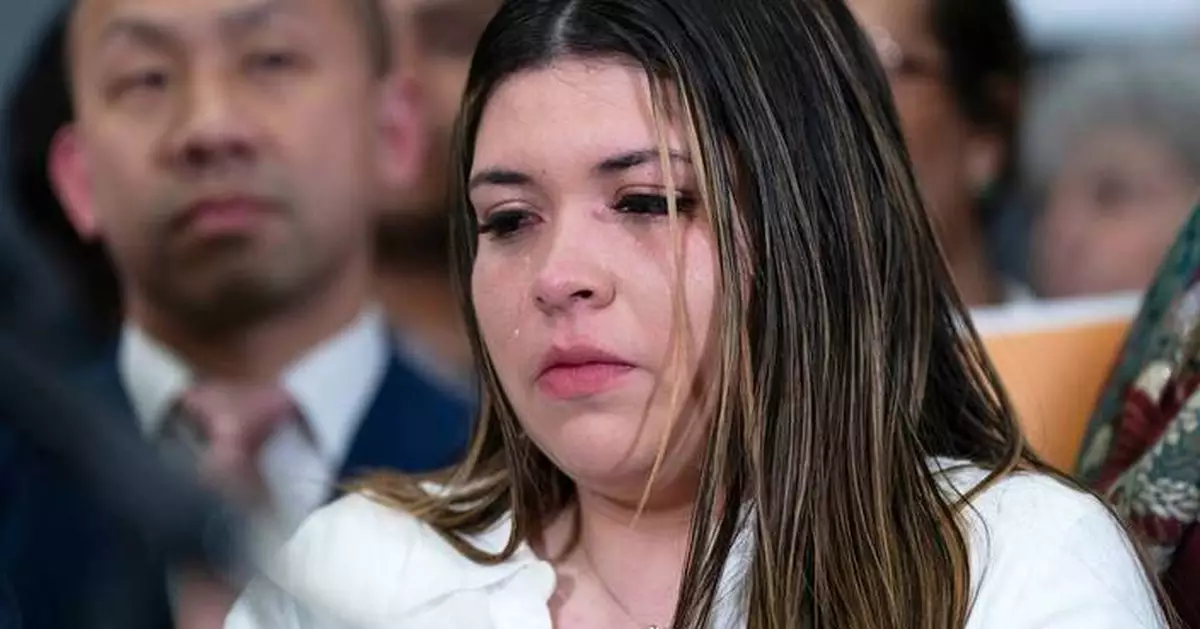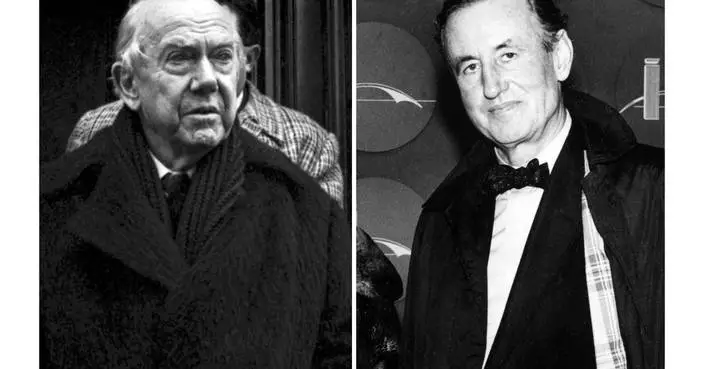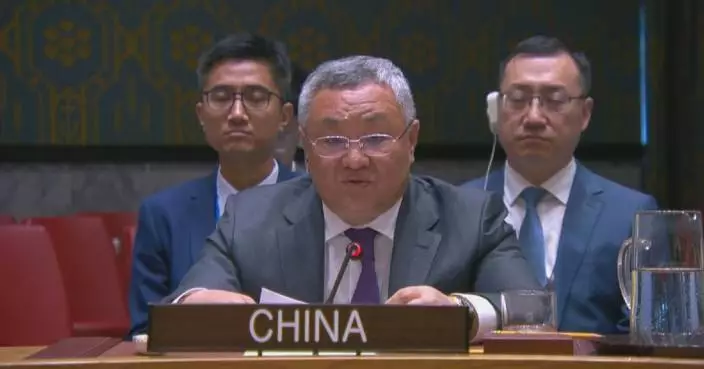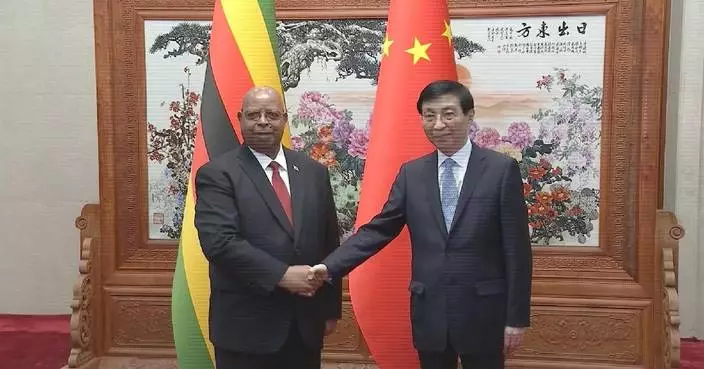A federal judge on Wednesday temporarily halted her order requiring the Trump administration to provide information on its efforts so far, if any, to retrieve a man who was mistakenly deported to El Salvador.
Drew Ensign, a deputy assistant attorney general, filed a sealed motion requesting a seven-day stay of the judge’s directive for the U.S. to provide testimony and documents that involve plans to retrieve Kilmar Abrego Garcia. The administration is also seeking relief from having to file daily updates on its progress.
Lawyers for Abrego Garcia filed a response in opposition to the government’s motion to halt the order. It was also under seal in the Maryland federal court.
U.S. District Judge Paula Xinis granted the stay until April 30, but her order did not make any changes to the required daily status updates. She didn't explain her legal reasoning, but wrote that it was made “with the agreement of the parties.”
The administration expelled Abrego Garcia to El Salvador last month, and officials later described the mistake as “an administrative error” — but insisted that Abrego Garcia was in fact a member of the MS-13 gang.
The Wednesday evening order came just one day after Xinis castigated the administration's lawyers in a written filing Tuesday for ignoring her orders, obstructing the legal process and acting in “bad faith” by refusing to provide information.
The U.S. has claimed that much of the information is protected because it involves state secrets, government deliberations and attorney client privilege. But Xinis has rejected the argument and demanded that the Trump administration provide specific justifications for each claim of privileged information by 6 p.m. Wednesday.
Tom Homan, the Trump administration’s border czar, did not directly address the judge’s comments from Tuesday when asked by reporters at the White House on Wednesday. But he reiterated the administration's position that Abrego Garcia will be detained and deported again if he were to be returned to the U.S.
The U.S. Supreme Court ordered the Trump administration nearly two weeks ago to facilitate Abrego Garcia’s return to the U.S., rejecting the White House’s claim that it couldn’t retrieve him after mistakenly deporting him.
Trump administration officials have pushed back, arguing that it is up to El Salvador — though the president of El Salvador has also said he lacks the power to return Abrego Garcia. The administration has also argued that information about any steps it has taken or could take to return Abrego Garcia is protected by attorney-client privilege laws, state secret laws, general “government privilege” or other secrecy rules.
But Xinis said those claims, without any facts to back them up, reflected a “willful and bad faith refusal to comply with discovery obligations.”
“For weeks, Defendants have sought refuge behind vague and unsubstantiated assertions of privilege, using them as a shield to obstruct discovery and evade compliance with this Court’s orders,” Xinis wrote in the order Tuesday. “Defendants have known, at least since last week, that this Court requires specific legal and factual showings to support any claim of privilege. Yet they have continued to rely on boilerplate assertions. That ends now.”
Abrego Garcia, 29, lived in the United States for roughly 14 years, during which he worked in construction, got married and was raising three children with disabilities, according to court records.
A U.S. immigration judge had shielded Abrego Garcia from deportation to El Salvador in 2019, ruling that he would likely face persecution there by local gangs that had terrorized his family. He also was given a federal permit to work in the United States, where he was a metal worker and union member, according to Abrego Garcia’s lawyers.
But the Trump administration expelled Abrego Garcia to El Salvador last month anyway.
Abrego Garcia was never charged with a crime and has denied the allegations. His attorneys have pointed out that the criminal informant claimed he was a member of MS-13 in Long Island, New York, where he has never lived.
It’s not the first time the Trump administration has faced a scathing order from a federal judge over its approach to deportation cases.
A three-judge panel on the 4th U.S. Circuit Court of Appeals scolded the administration last week, saying its claim that it can’t do anything to free Abrego Garcia “should be shocking.” That ruling came one day after a federal judge in Washington, D.C., found probable cause to hold the Trump administration in criminal contempt for violating his orders to turn around planes carrying deportees to El Salvador. That was a different legal case.
Democrats and legal scholars say Trump is provoking a constitutional crisis in part by ignoring court rulings; the White House has said it’s the judges who are the problem.
Associated Press writers Darlene Superville in Washington and Rebecca Boone in Boise, Idaho, contributed to this report.
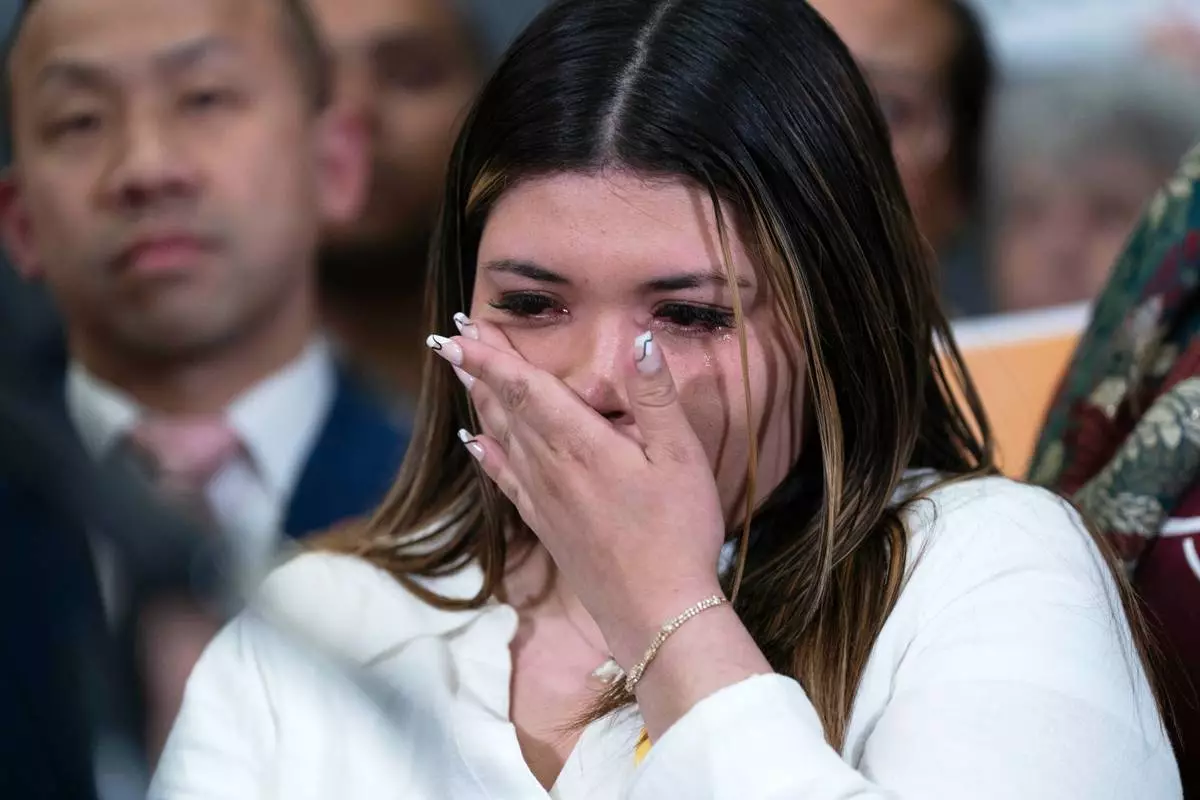
Jennifer Vasquez Sura wipes a tear from her face as Sen. Chris Van Hollen, D-Md., speaks during a news conference upon his arrival from meeting with her husband, Kilmar Abrego Garcia, in El Salvador, at Washington Dulles International Airport, in Chantilly, Va., Friday, April 18, 2025. (AP Photo/Jose Luis Magana)
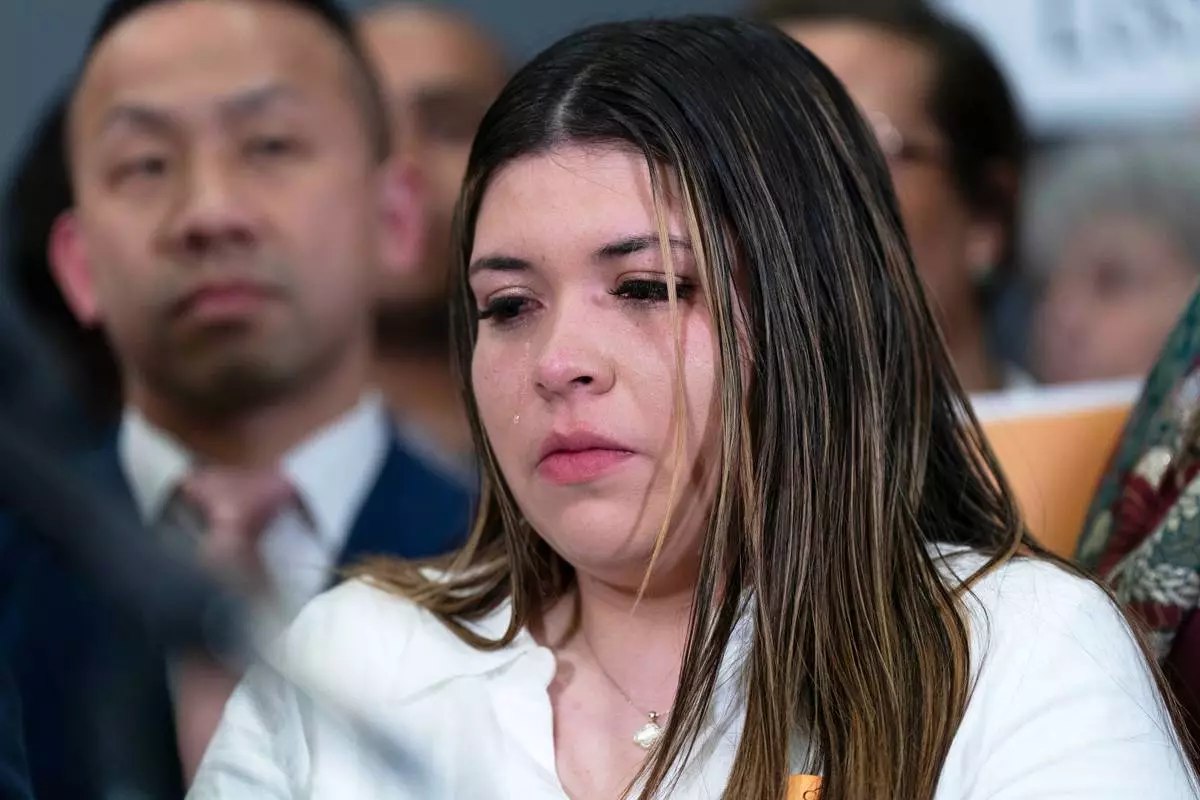
Jennifer Vasquez Sura cries as Sen. Chris Van Hollen, D-Md., speaks during a news conference upon his arrival from meeting with her husband Kilmar Abrego Garcia in El Salvador, at Washington Dulles International Airport, in Chantilly, Va., Friday, April 18, 2025. (AP Photo/Jose Luis Magana)
NEW YORK (AP) — The R&B singer Cassie returns to the witness stand Wednesday after a day spent recounting grotesque and humiliating details of life with her ex-boyfriend, Sean “Diddy” Combs.
Prosecutors allege Combs used his fame and fortune to orchestrate an empire of exploitation, coercing women into abusive sex parties. His lawyers argue that, although he could be violent, he never veered into sex trafficking and racketeering. They contend all sexual acts were consensual.
Here's the latest:
Cassie said her first “freak off” occurred in Combs’ Los Angeles home with a male stripper from Las Vegas. She told jurors she felt dirty and confused afterward, but also relieved that Combs was happy.
Still, she said she felt obligated to go along with future “freak offs.”
“I just didn’t want to make him upset,” she said. “I just didn’t want to make him angry and regret telling me about this experience that was so personal.”
Cassie began crying when asked if she liked any aspect of the “freak offs.” She said she enjoyed “time spent with him.”
She said she used drugs at every “freak off” to numb herself during “emotionless sex with a stranger that I didn’t really want to have sex with.”
The Associated Press doesn’t generally identify people who say they are victims of sexual abuse unless they come forward publicly, as Cassie has done.
In her 2023 civil lawsuit, Cassie alleges Combs trapped her in a “cycle of abuse, violence, and sex trafficking” for more than a decade, including raping her and forcing her to engage in sex acts with male sex workers. Combs settled the lawsuit the next day.
In May 2024, CNN aired video that showed Combs attacking Cassie in a hotel hallway in 2016. The video closely mirrored an assault described in her lawsuit, which said Combs had already punched her that night, and she was trying to leave the InterContinental Hotel in Los Angeles when he woke and came after her. In the footage, a man who appears to be Diddy, wearing only a towel, punches Cassie, kicks her, and throws her on to the floor. The lawsuit alleges Combs paid $50,000 to bury the video at the time.
Among other things, Cassie alleges Combs raped her when she tried to leave him and often punched, kicked and beat her, causing injuries including bruises, burst lips, black eyes and bleeding.
Prosecutor Emily Johnson says she’ll be questioning Cassie about her 10-year relationship with Combs for about half the day today before defense lawyers begin their cross examination.
She finished Tuesday by questioning Cassie as prosecutors once again displayed recorded footage of Combs’ attack on Cassie at a bank of elevators in a Los Angeles hotel in 2016. He kicked her and dragged her and later apologized after CNN first aired video of the attack last year.
Cassie told jurors she was “sexually inexperienced” when she met Combs and that he introduced her to various sex acts before asking her to engage in her first “freak off” when she was barely 22. Cassie said she was “confused, nervous, but also loved him very much” and “wanted to make him happy.”
Cassie, now 38, said her relationship with Combs ran the gamut from good times to arguments and physical altercations. She said the abuse happened “too frequently” and sometimes came after the smallest perceived slights.
Cassie said Combs ordered her to recruit male sex workers for “freak offs” and that he would pay them thousands of dollars to have sex with her. The encounters, fueled by ecstasy and other drugs, would go on for 36 or 48 hours, and she said the longest lasted four days. They took place in private, often in dark hotel rooms, unlike Combs’ very public White Parties in the Hamptons that attracted A-list celebrities.
▶ Read more about Cassie’s first day of testimony
A jury of 12 New Yorkers, plus a half-dozen alternates, is hearing testimony at the trial.
The group tilts male and middle-aged or older. Only three jurors are under 40. Five are over 60. Classical music listeners outnumber people who identified as hip-hop fans.
Their identities are known to the judge and lawyers but won’t be made public. The jurors revealed a little about themselves as they were selected for the trial.
Here’s what we know about the regular jurors:
Eight men
Four women
▶ Read more about the jury
Cassie sued Combs in 2023 alleging years of rape and abuse. The suit was settled within hours, but was followed by dozens of similar legal claims and touched off a criminal investigation.
A singer, actor, dancer and model, Cassie’s professional ambitions began in adolescence, when she signed to the top-tier talent and modeling agency Wilhelmina. Her music career launched shortly thereafter, when she left her home state of Connecticut for New York, where she signed with manager Tony Mottola and first met Combs.
Cassie met Combs in 2005 when she was 19 and he was 37. He signed her to his Bad Boy Records label and, within a few years, they started dating.
▶ Read more about Cassie
Cassie returns to the witness stand Wednesday after a day spent recounting grotesque and humiliating details of life with her ex-boyfriend.
During her first day of testimony, Cassie described being pressured into degrading sexual encounters with paid sex workers. She also recounted being beaten numerous times by Combs when she did things that displeased him — like smiling at him the wrong way.
“You make the wrong face and the next thing I knew I was getting hit in the face,” she said.
Cassie, whose legal name is Casandra Ventura, accused Combs of gaining her submission by threatening to publicly release videos of her with male sex workers.
Combs’ attorneys have acknowledged Combs could be violent but maintain that the sexual acts were consensual. They say nothing he did amounted to sex trafficking or racketeering — the charges that he faces.
Lawyers for Combs have yet to cross-examine Cassie, a type of questioning that will give them an opportunity to challenge her credibility or poke holes in her accounts of what happened.
▶ Read more about Cassie’s testimony
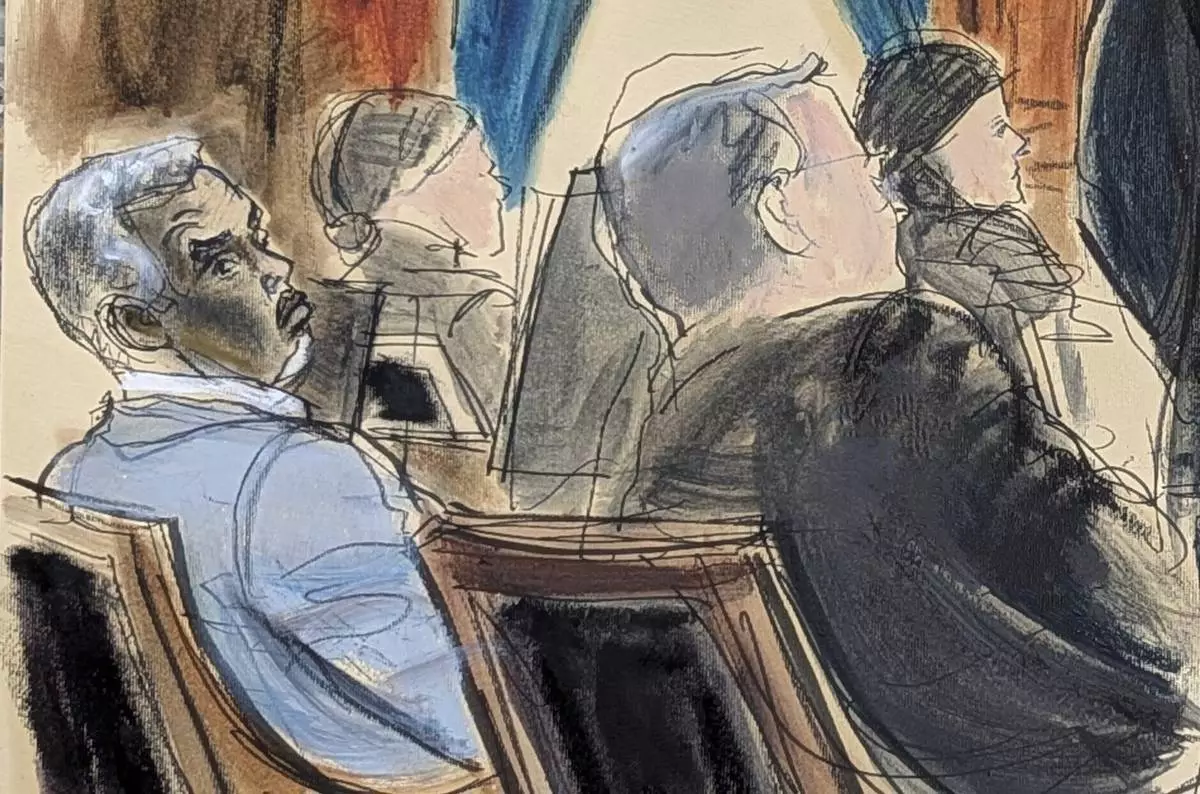
Sean Diddy'Combs, far left, and attorney Marc Agnifilo, right, sit at the defense table during witness testimony in Manhattan federal court, Tuesday, May 13, 2025, in New York. (Elizabeth Williams via AP)
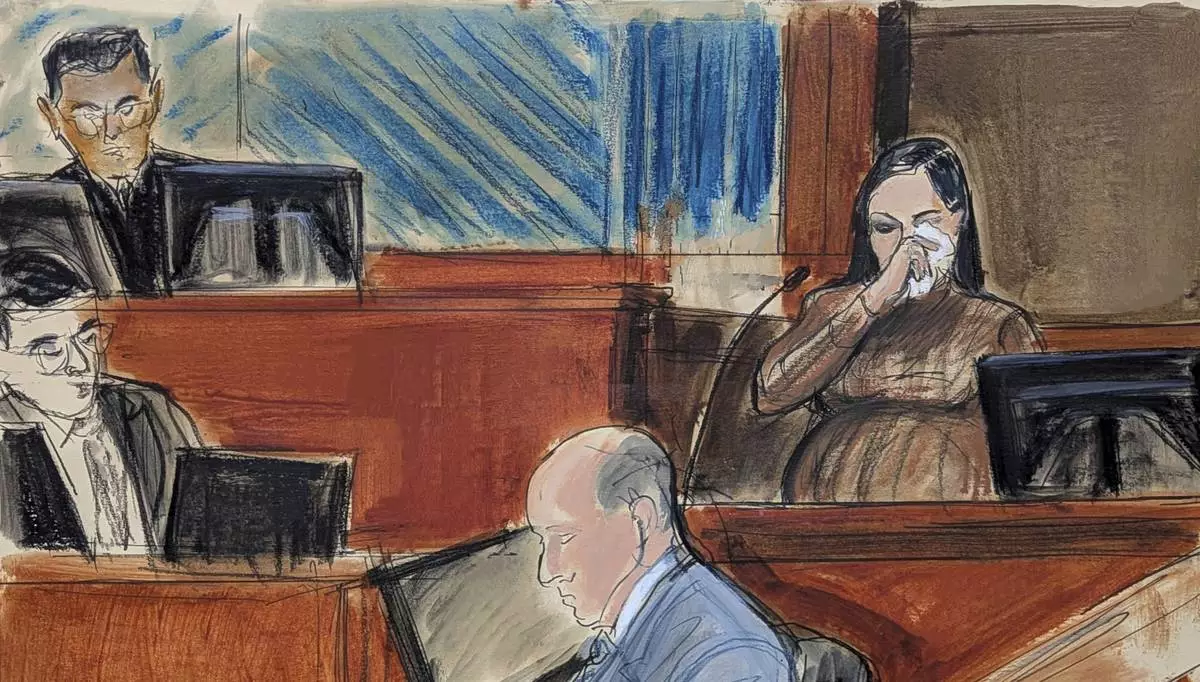
Cassie Ventura wipes tears from her eye while testifying in Manhattan federal court, Tuesday, May 13, 2025, in New York. (Elizabeth Williams via AP)




